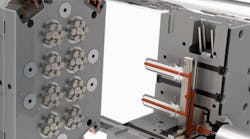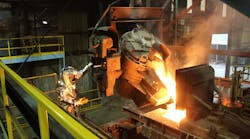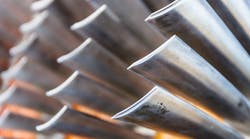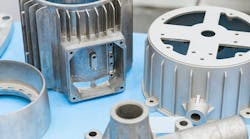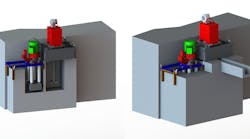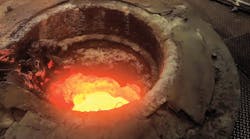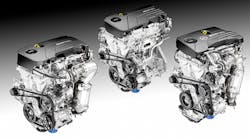General Motors Corp. is expected to initiate another capital expansion program this year at its aluminum metalcasting operation in Bedford, IN, to increase capacity for casting small aluminum engine blocks. The reported $27.3-million project would begin in November, according to local reports, and would add more than 40 new workers to the payroll, bringing the total to nearly 700.
The automaker has not announced its plans. The details of the project are drawn from a tax-abatement request recently approved by the Bedford City Council. GM was granted a 10-year abatement on the cost of the project.
Smaller and lighter engine designs are one of the standard approaches taken by automakers to achieve mandated fuel-economy standards. General Motors announced its new series of Ecotec small-displacement engines earlier this year, describing the three- and four-cylinder models as “the cornerstone of a powertrain strategy founded on downsized engines that deliver robust power with greater efficiency, segment-leading refinement, and low CO2 emissions.”
It plans to offer 11 Ecotec engine variants, eventually, ranging from 1.0 to 1.5 liter displacement, including turbocharged versions, with power ratings ranging from 75 to 165 horsepower (56-123 kW). All versions will be built on an aluminum cylinder block and head, GM noted, with design modularity (e.g., four-cylinder and three-cylinder blocks that have standard bore spacing, bore diameter, liners, block height and other dimensions) to reduce complexity and increase flexibility to adapt designs to new applications.
GM Powertrain’s Bedford operation is said to be one of the world’s largest aluminum diecasting operations. It has mainly been assigned to produce transmission casings and converter housings.
However, Bedford has been the site of more than $335 million in capital investments since 2006, according to the automaker’s records. In 2010, GM initiated a $111-million project to add semi-permanent mold casting for V6 and V8 engine cylinder heads. In June and July 2011, GM announced capital projects totaling $81 million to install capability for an 8-speed transmission and small-block engines.
The most recent of capital investment announced for Bedford was a $29.2-million program introduced late last year, to produce new 6-speed and 10-speed transmission components.

